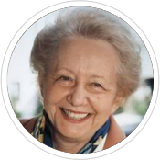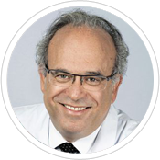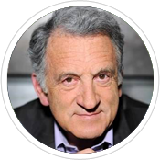At the origin of the Pax Medicalis association, there are health care professionals who wished to promote intercultural and interreligious dialogue around the notion of care. Over the years, the projects of citizens’ meetings have followed one after the other, initially exclusively organised around medical themes, and have progressively opened up to other fields such as teaching, philosophy, literature, culture, music or sport.
Let us also mention the tremendous "Olivier d’Or" initiative (golden olive tree), initiated by the association, rewarding the work of personalities deserving to be designated as "Lights of Our Time": Sister Emmanuelle, Elie Wiesel, Latifah Ibn Ziaten, Izzeldin Abouelaish, André Azoulay and Serge & Beate Klarsfeld.
I had the pleasure of participating in these initiatives on two occasions, for the tribute to Elie Wiesel and for the interreligious Lighting of Hanukkah made by the representatives of the three monotheistic religions in the beautiful town of Menton where the association inaugurated the "Garden of Peace", a garden in memory of Simone Veil.
What moved me in relation to the action of this association, is that it fosters a true intergenerational dialogue in the proposed activities. During the walks for fraternity, I saw very young people feeling deeply involved in the responsibility of a duty to remember. In the trips proposed to Israel to encourage dialogue between Israelis and Palestinians, the health care professionals come together through the notion of helping others.
Accompanying Pax Medicalis to Essaouira for me, as a UNESCO Artist for Peace, and reading Simone Veil’s "Human Rights and Health" speech, delivered in Boston in 1996, confirms what I felt during my first collaborations with this association. I quote here a sentence of Simone Veil from this speech:
"It is no longer just the disease that is taken into account but the person, the woman, the man or the child concerned in the fullness of their rights for which we are aware that society must feel responsible".
The ambition of Pax Medicalis is indeed not only to connect people with each other, but also to make them understand the necessity of the connection which unites them as being the sine qua non condition of Peace.
Indeed, for Pax Medicalis, Peace is not something passive that would come only through an agreement assuming a mere state of "non-war" between human beings. Peace comes from a state of integrity that implies an active relationship with the other based on the notion of care. One can only do the "shalom" in Hebrew if one is "shalem", a word based on the same root, i.e. totally filled with this notion of completeness of acceptance of the other in their difference and similarity. This "integrative" notion of health is what Alain Toledano advocates for through his incredible Rafael Institute: no longer relying on the symptom to be annihilated, but rather taking the patient as a whole in order to enlighten and heal them completely.
Besides, do not we say a triple blessing in both Judeo-Arabic languages when we greet each other? "Salam/Shalom" refers both to the wish for a good day through a greeting but also through a blessing of wholeness and peace that is immediately sent to the other person being considered.
This is what Pax Medicalis is offering through this symposium in Essaouira entitled "Health care: a Gateway to Peace". This privilege of distributing care is not limited to a medical elite, but it is by suggesting, on the contrary, a redefinition of medicine as a holistic practice, that everyone becomes a "guardian of care for the other" on the physical, psychological, social and environmental levels.
Why Essaouira? Why Morocco? Because this city is the emblem of this incredible inter-religious syncretism through the festivities it has been offering for years thanks to the "Matrouz", a musical embroidery mixing voices, languages and sounds...
It is through a powerful symbolism that Morocco today proposes to resonate the music of souls finally reunited, happy and complete in a deep and sincere reconciliation....
Pax Médicalis will return the favour during its trip to Israel next April under the sign of Jewish-Moroccan friendship by once again proposing to meet under the aegis of caring for others and discovering our desire to move forward together for a more humane and just world to come...
And since health care is also an art... let us all be artists and peacemakers as Pax Médicalis proposes!
Dr. Guila Clara Kessous
UNESCO Artist for Peace




